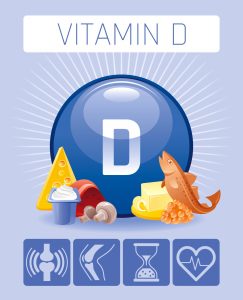 Stroke continues to be one of the top ten leading causes of death in the United States. And even if a person survives a stroke, they may face permanent disability from a stroke. In turn, having a stroke could greatly impact a person’s quality of life. This is why it’s so important to keep learning more about how this disease can be prevented. A recent study shows that taking a fish oil supplement each day may help lower risk of stroke.
Stroke continues to be one of the top ten leading causes of death in the United States. And even if a person survives a stroke, they may face permanent disability from a stroke. In turn, having a stroke could greatly impact a person’s quality of life. This is why it’s so important to keep learning more about how this disease can be prevented. A recent study shows that taking a fish oil supplement each day may help lower risk of stroke.
What is stroke?
Stroke is a form of vascular disease that affects the arteries to and within the brain. A stroke occurs when these vessels become blocked by a clot or bursts. A stroke caused by a blockage is called an ischemic stroke. On the other hand, a stroke called by a ruptured vessel is called a hemorrhagic stroke.
Since these arteries normally carry oxygen and blood to the brain, this blockage can be deadly. If the brain, or the control center of your body, doesn’t receive oxygen or nutrients, then brain cells can die. This in turn can wreak havoc all over your body.
Depending on what area of the brain the stroke occurs, different complications can occur. A right brain stroke can cause paralysis on the left side of the body, vision problems, and memory loss. On the other hand, a stroke on the left side of the brain can cause paralysis on the right side of the body, speech problems, and memory loss.
Either way, these complications can greatly affect quality of life. However, by taking care of your heart health, you can lower your risk of stroke.
What is fish oil?
Fish oil is a supplement that contains omega-3 fatty acids. Two of the primary long-chain omega-3 fatty acids in fish oil supplements are DHA, or docosahexaenoic acid, and EPA, or eicosapentaenoic acid. These fatty acids are marine-based, hence fish oil supplements.
The omega-3 fatty acids are polyunsaturated fatty acids (PUFA) are well-known for their role in heart health. Study results show that fish oil works well as a supportive treatment, along with statins, to help lower heart disease risk. The average fish oil supplement provides about 1000 milligram of fish oils, containing about 180 mg EPA and 120 mg DHA or more.
An example of a high quality fish oil supplement is the formula developed by Vita Sciences. This fish oil by Vita Sciences contains 400mg of EPA and 300mg of DHA in a 1000 milligram fish oil supplement.
Stroke and fish oil research
A recent study analyzed data from about 55,000 people enrolled in the Danish Diet, Cancer and Health study. They completed dietary surveys and had baseline adipose tissue analysis completed. Then, the individuals had follow-up assessments after 13.5 years to check for ischemic stroke status events, if any.
Study results show that those with higher adipose tissue content of EPA showed a lower risk of total ischemic stroke. Also, lower rates of large artery atherosclerosis were seen with higher intakes of total marine n-3 PUFA, EPA, and DHA.
Other ways to reduce stroke risk
Besides taking a fish oil supplement each day, here are some other ways you can lower your stroke risk.
- Quit smoking if you already do. This is because smoking can constrict blood vessels. This, in turn, can raise blood pressure and increase risk of stroke.
- Maintain heart health by keeping blood pressure and cholesterol levels in a healthy range. You can do this by eating a diet rich in fiber and antioxidant-rich fruits and vegetables, lean proteins, and healthy fats. Also, be sure to move more on a regular basis to keep your heart muscle strong and maintain a healthy weight.
- Keep your blood glucose levels in a healthy range. This is because those with diabetes are at higher risk for heart health issues than those without diabetes.
- Visit your doctor regularly. By having your labs done at least yearly (or more often if you have a chronic disease risk), you can track your progress. Early detection of heart health issues can help lower your risk of stroke.
-written by Staci Gulbin, MS, MEd, RD
References:
American Stroke Association (accessed January 23, 2019) “About Stroke.”
Centers for Disease Control and Prevention (last reviewed November 28, 2017) “Stroke.” https://www.cdc.gov/stroke/index.htm
Harvard T.H. Chan School of Public Health (accessed January 23, 2019) “Omega-3 Fatty Acids: An Essential Contribution.” https://www.hsph.harvard.edu/nutritionsource/what-should-you-eat/fats-and-cholesterol/types-of-fat/omega-3-fats/
Hughes, S. (January 17, 2019) “Fish Oil, Particularly EPA, Linked to Reduced Ischemic Stroke.” https://www.medscape.com/viewarticle/907950
National Institutes of Health Office of Dietary Supplements (last updated November 21, 2018) “Omega-3 Fatty Acids.”
Office of Disease Prevention and Health Promotion (last updated October 29, 2018) “Reduce Your Risk of Stroke.”
 You can’t talk about a heart healthy lifestyle without at least referring to the Mediterranean diet. That’s because this Greek-style eating plan is full of heart healthy foods and other healthful tips. But did you know that this diet is also good for brain health? Recent research shows that certain nutrients found in the Mediterranean diet can help with brain health aging in older adults.
You can’t talk about a heart healthy lifestyle without at least referring to the Mediterranean diet. That’s because this Greek-style eating plan is full of heart healthy foods and other healthful tips. But did you know that this diet is also good for brain health? Recent research shows that certain nutrients found in the Mediterranean diet can help with brain health aging in older adults. Exercise is an important part of any healthy lifestyle. Along with healthy eating, managing stress, and sleeping enough, exercise is vital for heart health. However, starting an exercise program can be hard.
Exercise is an important part of any healthy lifestyle. Along with healthy eating, managing stress, and sleeping enough, exercise is vital for heart health. However, starting an exercise program can be hard.
 Vegan diets have seemed to gain popularity over the years for several reasons. First of all, a plant-based diet full of fiber and antioxidants seems to improve heart health risk factors. Secondly, it’s a way for people to show they support animal rights. Also, it’s an eating regimen that can be fitting for those who may have dairy and or egg allergies. However, recent research shows that a vegan diet could also help improve the health of body and mind of those with type 2 diabetes.
Vegan diets have seemed to gain popularity over the years for several reasons. First of all, a plant-based diet full of fiber and antioxidants seems to improve heart health risk factors. Secondly, it’s a way for people to show they support animal rights. Also, it’s an eating regimen that can be fitting for those who may have dairy and or egg allergies. However, recent research shows that a vegan diet could also help improve the health of body and mind of those with type 2 diabetes.  It may seem like common sense that living a healthier lifestyle can lower your disease risk. but what exactly is a healthier lifestyle? With so much information on health and wellness in the media, it can be hard to know what healthy really is. From low carb to keto to fasting, each diet plan claims to be the best and healthiest. However, the healthiest eating regimen is going to be the one that makes your unique body feel its best and that you can stick with for the long term. Not to mention, that being healthy is about more than just diet. Staying active, managing stress, and sleeping well enough are just some behaviors that affect health. Recent research shows that leading a healthier lifestyle can reduce your stroke risk and in turn improve your quality of life.
It may seem like common sense that living a healthier lifestyle can lower your disease risk. but what exactly is a healthier lifestyle? With so much information on health and wellness in the media, it can be hard to know what healthy really is. From low carb to keto to fasting, each diet plan claims to be the best and healthiest. However, the healthiest eating regimen is going to be the one that makes your unique body feel its best and that you can stick with for the long term. Not to mention, that being healthy is about more than just diet. Staying active, managing stress, and sleeping well enough are just some behaviors that affect health. Recent research shows that leading a healthier lifestyle can reduce your stroke risk and in turn improve your quality of life. It’s well-known that healthy fats can help improve heart health. But did you know that they could also help you stay healthy all over as you get older? Omega-3 fatty acids are a form of unsaturated healthy fats. You can find these fatty acids in plant-based oils and vegetables like avocado. However, you can also find healthy fats in seafood like fatty fish. It’s this latter form of fatty acids that has been studied recently in connection with aging. Let’s take a look at what omega-3 fatty acids are, where you can find them, and how they can help you stay healthy as you age.
It’s well-known that healthy fats can help improve heart health. But did you know that they could also help you stay healthy all over as you get older? Omega-3 fatty acids are a form of unsaturated healthy fats. You can find these fatty acids in plant-based oils and vegetables like avocado. However, you can also find healthy fats in seafood like fatty fish. It’s this latter form of fatty acids that has been studied recently in connection with aging. Let’s take a look at what omega-3 fatty acids are, where you can find them, and how they can help you stay healthy as you age. Diabetes can be a tough disease to manage. From doctor’s visits to medications to daily blood glucose checks, it can be a lot to juggle for anyone. Not only that, but having diabetes means diet changes that can make every meal or snack a challenge. Counting carbohydrates and reading labels can become a new task to take on every time you buy groceries. This can be time-consuming and can also make social events stressful.
Diabetes can be a tough disease to manage. From doctor’s visits to medications to daily blood glucose checks, it can be a lot to juggle for anyone. Not only that, but having diabetes means diet changes that can make every meal or snack a challenge. Counting carbohydrates and reading labels can become a new task to take on every time you buy groceries. This can be time-consuming and can also make social events stressful. If you have diabetes, you may or may not know that you are at higher risk for heart disease than those who don’t have diabetes. However, in addition to heart disease, you could also be at risk for bone health issues. This risk was discovered in a recent study that found those with diabetes were at higher risk for osteoporosis than those without diabetes. Therefore, this finding warrants further research on this risk. And in turn, standard diabetes diet and supplement treatments may need to be revised to account for this higher risk.
If you have diabetes, you may or may not know that you are at higher risk for heart disease than those who don’t have diabetes. However, in addition to heart disease, you could also be at risk for bone health issues. This risk was discovered in a recent study that found those with diabetes were at higher risk for osteoporosis than those without diabetes. Therefore, this finding warrants further research on this risk. And in turn, standard diabetes diet and supplement treatments may need to be revised to account for this higher risk. Obesity is a growing problem around the world today. Along with these growing statistics is also the growing amount of diet and exercise programs trying to help people lose weight. Recent research shows though that diet and exercise may not be the whole solution to the obesity issue. Vitamin D, also known as the sunshine vitamin, may be the key to helping people lose weight and lower risk of chronic disease.
Obesity is a growing problem around the world today. Along with these growing statistics is also the growing amount of diet and exercise programs trying to help people lose weight. Recent research shows though that diet and exercise may not be the whole solution to the obesity issue. Vitamin D, also known as the sunshine vitamin, may be the key to helping people lose weight and lower risk of chronic disease.